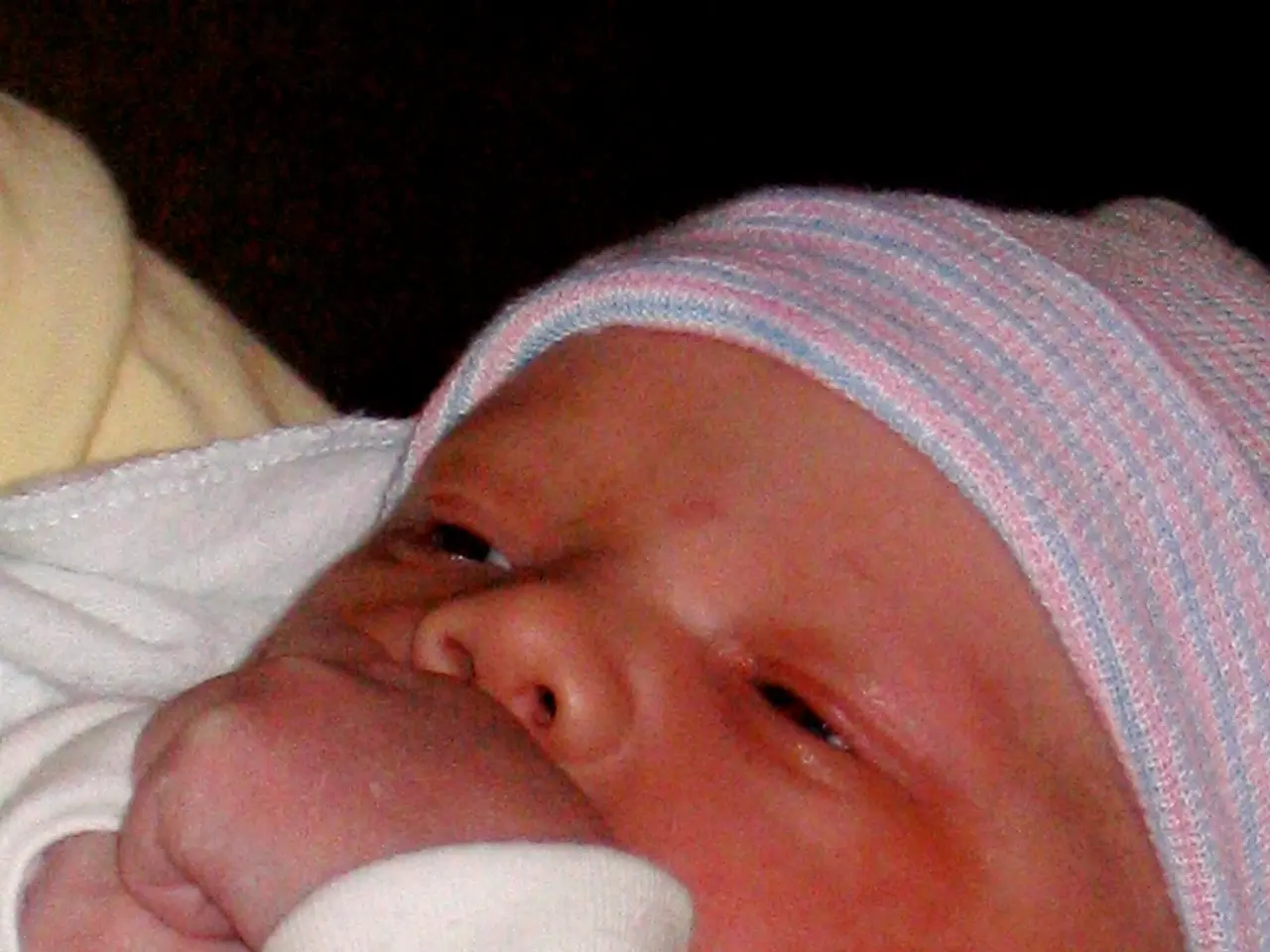In Turkey, a dedicated medical team successfully carries out an extraordinary birth rescue, as a newborn is born with the majority of its organs positioned outside its body.
In the western city of Izmir, Türkiye, the Kurnaz family is eagerly counting down the days until they can take their newborn son, Deniz Kaan, home. Deniz Kaan, nearly a month old, was born with a rare condition called an omphalocele, a congenital abdominal wall defect that causes organs to protrude from the belly button.
The family first sought help from associate professor Halil Gürsoy Pala, an obstetrician and gynecologist at Bazekol Çiğli Hospital, after learning about Deniz Kaan's condition during the 11th week of pregnancy. The diagnosis came as a shock during routine checkups, but the family was reassured that with expert medical care, their son could have a promising future.
Deniz Kaan's recovery process involved staged surgical repair, a common approach for omphalocele cases. Professor Emre Divarcı, a pediatric surgeon from Medical Point Hospital, performed the surgeries to correct Deniz Kaan's omphalocele. Initially, a mesh or silo was placed to cover and contain the organs outside the body, followed by subsequent surgeries to close the defect fully. After the abdominal wall was closed, careful feeding and monitoring began, with discharge planned once the baby was stable and feeding was established.
The prognosis for isolated omphalocele cases without additional genetic problems is often very good with modern surgical techniques and neonatal care, leading to survival rates that are high, although the recovery can take days to weeks depending on severity. For Deniz Kaan, born with a 10-centimeter defect involving intestines and liver outside the body, doctors successfully performed staged repairs, and he was progressing well enough to start feeding and prepare for discharge within days of the final surgery.
The key points in recovery include early detection by prenatal ultrasound to plan delivery at a specialized center, staged surgical intervention, prevention of damage to the omphalocele sac during transfer and surgery, intensive neonatal care focusing on feeding and infection prevention, and close monitoring for complications like feeding difficulties or infections.
Compared to related defects like gastroschisis, omphalocele generally shows a similar approach with staged repair and specialized neonatal care, leading to a survival rate above 90% when no other complications exist.
Deniz Kaan is still in intensive care and improving daily. If no other genetic issues are found, an omphalocele can often be successfully treated after birth. Mother Bilge Kaplan Kurnaz is keeping a diary for Deniz Kaan to document his journey, providing a precious record of the challenges and triumphs they have faced together.
The Kurnaz family had been married for 10 years before Deniz Kaan's birth, and they have faced their son's condition with resilience and hope. They were initially advised by some doctors to terminate the pregnancy due to low survival chances, but they chose to fight for their son's life, and their determination has paid off.
In summary, Deniz Kaan's case illustrates a successful recovery trajectory: early diagnosis, expert staged surgical repair, postoperative care, and a positive outlook for discharge and feeding, all consistent with best practices for omphalocele management. The family looks forward to the day when they can finally take Deniz Kaan home, marking the beginning of a new chapter in their lives.
- The Kurnaz family, residing in the western city of Izmir, Türkiye, anticipates the day they can bring home their newborn son, Deniz Kaan, following his recovery from a rare condition called an omphalocele.
- The family sought medical advice from associate professor Halil Gürsoy Pala, an obstetrician and gynecologist at Bazekol Çiğli Hospital, after learning about Deniz Kaan's condition during the 11th week of pregnancy.
- With expert medical care, Deniz Kaan's prognosis for a promising future was reassured, despite the shock of the diagnosis during routine checkups.
- Deniz Kaan's recovery process involved staged surgical repair, a common approach for omphalocele cases, with Professor Emre Divarcı, a pediatric surgeon from Medical Point Hospital, performing the surgeries.
- The recovery process for omphalocele includes early detection by prenatal ultrasound, staged surgical intervention, prevention of damage to the omphalocele sac, intensive neonatal care, feeding and infection prevention, and close monitoring for complications.
- Compared to related defects like gastroschisis, omphalocele generally has a similar approach with staged repair and specialized neonatal care, leading to a survival rate above 90% when no other complications exist.
- If no other genetic issues are found, an omphalocele can often be successfully treated after birth, as illustrated by Deniz Kaan's case.
- Deniz Kaan's mother, Bilge Kaplan Kurnaz, has been documenting her son's journey in a diary, providing a precious record of the challenges and triumphs they have faced together.
- In cases of omphalocele, the family's resilience and hope are crucial, as they initially faced advice from some doctors to terminate the pregnancy due to low survival chances.
- Looking ahead, the family eagerly awaits the day they can take Deniz Kaan home, marking the beginning of a new chapter in their lives, filled with health and wellness, fitness and exercise, and overcoming various medical conditions like chronic diseases, respiratory conditions, digestive health issues, eye health, hearing problems, and skin conditions.
- As Deniz Kaan grows, the family may also need to address neurological disorders, skin conditions, mental health, and autoimmune disorders, utilizing various therapies, treatments, and medicare resources, such as cbd, to aid in his recovery and overall health.




